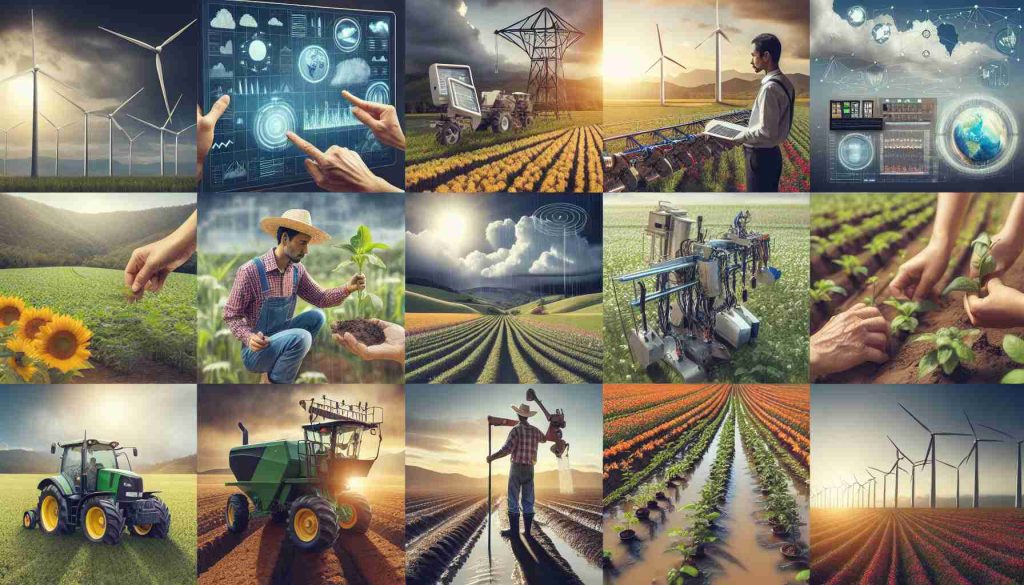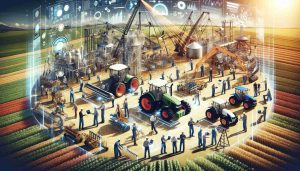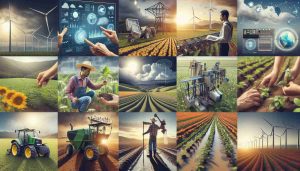Redefining Success: Technology Empowers Farmers Amidst Climate Challenges
3 min read
In the heart of rural Kenya, farmer Stephen Nzioka has embraced innovative tools to navigate the unpredictability brought on by climate change.
In place of traditional methods, which often involve guesswork and risk-taking, Nzioka now leverages technology to make informed decisions about his agricultural practices. Through the use of a weekly text message service tailored to provide weather forecasts and agricultural tips, Nzioka has experienced a transformative shift in his farming approach.
Embracing Change Through Technology
Gone are the days of blindly relying on instinct; Nzioka now harnesses the power of data-driven insights to optimize his farming operations. By staying ahead of weather patterns and gaining access to valuable guidance, he can mitigate risks and adapt his strategies accordingly.
Empowering Farmers for a Sustainable Future
Nzioka’s story exemplifies the vital role that technology plays in empowering farmers to thrive in the face of environmental challenges. With the right tools and information at their fingertips, individuals like Nzioka can not only survive but also thrive in a rapidly changing climate.
Looking Ahead
As technology continues to advance, opportunities for farmers to enhance their resilience and productivity will only grow. By embracing digital solutions and innovative approaches, farmers worldwide can pave the way for a more sustainable and prosperous future.
Expanding Horizons through Technological Innovations
While farmer Stephen Nzioka’s story underscores the transformative impact of technology on agricultural practices, there are additional facets to consider in the realm of digital empowerment for farmers. One crucial question arises: How can small-scale farmers in remote regions access and afford cutting-edge technologies to bolster their resilience against climate challenges?
Access to Technology and Affordability
One key challenge lies in ensuring equitable access to technological tools and resources for farmers across diverse socioeconomic landscapes. While advancements in agri-tech offer immense potential, disparities in affordability and infrastructure pose significant barriers for many smallholders. Bridging this gap necessitates innovative solutions and collaborative efforts to democratize technology-driven solutions.
Quality of Information and Data Security
Amidst the proliferation of tech-based agricultural services, another critical consideration revolves around the quality and reliability of information provided to farmers. How can individuals like Nzioka discern accurate data from sources that may not have their best interests at heart? Robust data security measures and educational initiatives are essential to safeguard farmers from misinformation and data breaches in an increasingly digitized farming ecosystem.
Advantages and Disadvantages of Tech Integration
The integration of technology in agriculture offers a wealth of benefits, from optimized decision-making and resource allocation to improved yields and environmental sustainability. However, it also raises concerns regarding data privacy, dependency on digital systems, and the potential exclusion of marginalized farmers who lack access to necessary infrastructure. Striking a balance between harnessing the advantages of technology and mitigating its drawbacks is crucial for fostering inclusive and equitable agricultural development.
Exploring Further Resources
For those interested in delving deeper into the intersection of technology, farming, and climate resilience, exploring reputable sources such as Food and Agriculture Organization (FAO) can provide valuable insights and research-backed perspectives on leveraging digital innovations for sustainable agriculture.
As the agricultural landscape continues to evolve in response to climate change and technological advancements, the imperative lies in equipping farmers with the knowledge, tools, and support they need to redefine success on their own terms in a rapidly changing world.
The source of the article is from the blog krama.net



